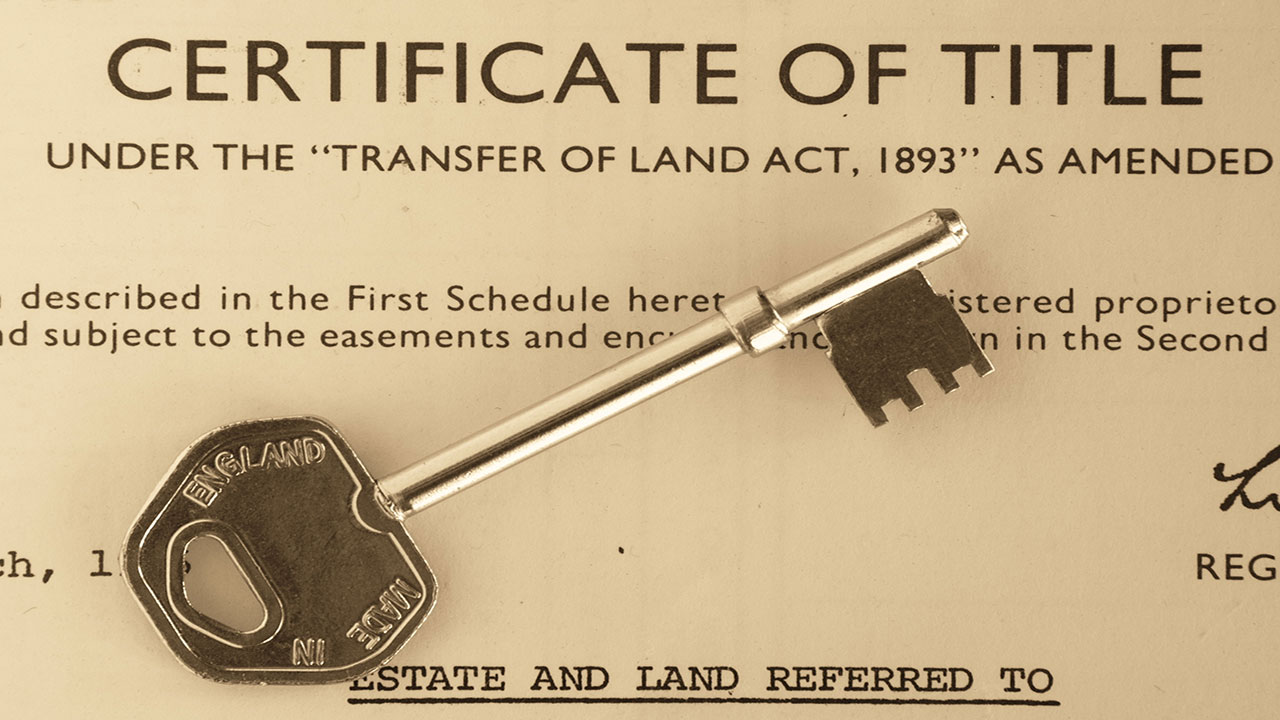Title Insurance 101: Everything You Need to Know

Buying a new home can certainly be an overwhelming and sometimes frightening thing, especially if you’re completely new to this game. There are so many components involved in buying real estate that buyers need to be aware of in order for a transaction to successfully take place, including a little something called “title insurance.”
The thing is, many buyers are completely unfamiliar with title insurance and why it’s necessary when real estate switches hands. But title insurance is often a crucial element of a real estate transaction that all buyers should be aware of.
So, what exactly is title insurance?
Basically, title insurance is a policy that can be put into effect if there are any issues relating to the ownership of a property. For instance, any liens or defects on title or other owners or heirs that haven’t been disclosed can all interfere in a successful sale of a home. With title insurance in effect, buyers can be protected from taking possession of a property that has problems with its title.
As a buyer, you don’t want to deal with any issues as a result of a defective title, which can cause you nothing but headaches and financial distress. Title insurance can help ease your concerns, which make these policies well worth the money.
Who Pays For Title Insurance?

Buyers typically pay for title insurance, particularly lender’s coverage, though this will depend on the county and what’s customary in your particular real estate market. It can also be part of the negotiation process. Buyers and sellers can also agree to split the fee for owner’s title insurance.
The fee associated with title insurance is only paid once at the time of purchase. Unlike traditional insurance policies, there is no need to pay a monthly or annual fee.
Types of Title Insurance Coverage

Buyers and sellers have options when it comes to title insurance policies. That said, the more common types of policies include:
Lender’s title insurance – This title insurance policy covers liens (including contractor and mechanic liens), easements not on record, access rights, and defects on title. Lenders will typically require that a lender’s insurance policy be bought in order to protect their investment.
Basically, lenders will want to ensure that the deal is legitimate and involves sellers who are legally allowed to sell the property. This policy only covers the outstanding amount of the mortgage at the time of a claim filing.
Owner’s title insurance – This type of policy is meant to protect against fraud, forgery, restrictive covenants, and any encumbrances that may be found on title. This policy that covers your interest, aside from the outstanding loan amount.
Extended title insurance coverage – Any building permit violations from the previous owners, trusts, encroachments, and covenant violations will be covered by an extended title insurance policy.
The exact type of coverage you get will depend on your particular policy. For instance, lender’s title insurance will cover your mortgage if you wind up losing your house as a result of a previously unknown lien; however, any payments that have already been made towards the mortgage will not be recouped, including your down payment. For this reason, it’s important for buyers to also purchase an owner’s policy too.
A standard owner’s policy typically covers up to the purchase price of the home. An enhanced policy will be required to account for any inflation and to provide further coverage for liens that are filed after the closing date. For instance, if you purchase a property and everything seems fine at closing, you would not be covered if a mechanic’s lien is filed afterward for any work done on the home that has not been paid for, unless an enhanced title insurance policy is purchased.
The type of title insurance policy you choose to take out should only be done after you’re familiar with all types and what each offers in terms of protection.
Title Searches

During the escrow phase of the contract after an offer is accepted, the title insurance company will conduct a title search to uncover any issues with the title that are not outright known. Deeds, trusts, and wills will be looked at and reviewed to find out the history of the property and any transactions that have taken place in the past.
Important things will be looked at during this title search, such as whether or not all past loans and liens have been repaid, whether there are any easements on title, and if there are legal actions still pending. The bulk of the title insurance fee goes towards to the work required to conduct this title search, as well as to provide ongoing coverage in case anything was missed during this title search.
The Bottom Line
Title insurance policies are designed to help prevent any unpleasant surprises about the title of a property after a home has been bought and a deal goes through. The last thing you want is to have to deal with a messy title that will cause you nothing but grief and money. With a title insurance policy in place, you can go into a real estate contract knowing that the title will be thoroughly investigated before you take possession.


